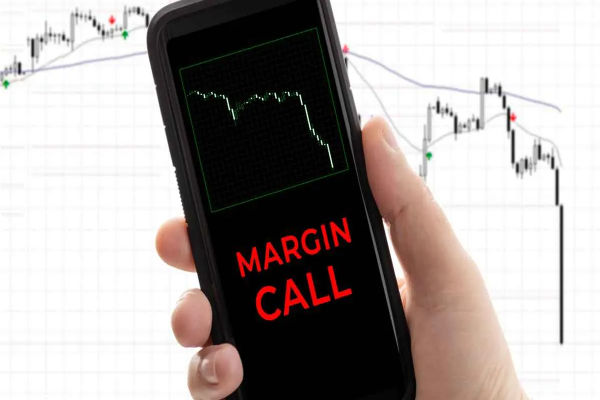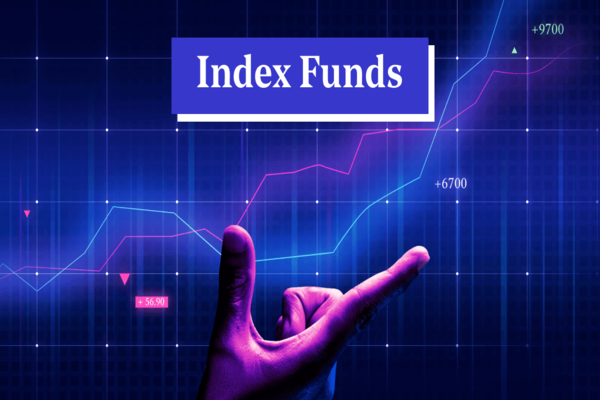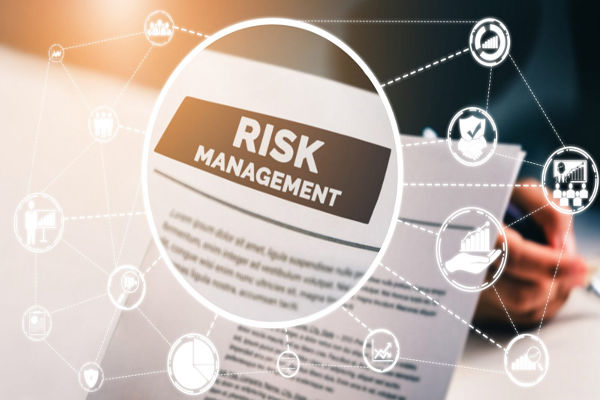
People in any profession need to master some key skills, and the same applies to the field of investment and trading.
Some of these skills are soft skills acquired over time, such as focus and control. Other skills require more formal education, including a deep understanding of economics, financial markets, technical analysis, and research.
To help clarify how a specific degree can prepare young people for future trading or investment, this article provides a detailed analysis of EBC Finance.
Daily Responsibilities of the Investment and Trading Industry
Although movies may make us think that traders are just shouting all day in the bustling stock exchange, this is no longer the case today. Although a few traders still use this auction style method for trading, most traders buy and sell assets electronically in front of their computers every day.
Traders must continuously conduct research and analysis to determine the potential price patterns of specific assets. This includes closely monitoring the daily movements of financial markets and considering broader economic trends. Then traders use this information to make trading decisions.
We can divide investment professions into two categories - asset management ("buyers") and investment banking ("sellers"). Investment banking positions are typically heavily quantified, while asset management typically involves building relationships and helping clients achieve their goals.
Investment positions in asset management include research analysts, portfolio managers, and financial advisors. Investment banking professions with investment components include trading, but also include corporate finance, derivatives, equity and fixed income research, emerging markets, and research analysts (analyst positions exist in both asset management and investment banking).
The common feature of all these positions is their strong emphasis on numbers, research, and analysis.
Undergraduate degree

Now that we have a better understanding of our daily responsibilities, we will introduce some university degrees that are suitable for future careers in the fields of trading and investment. We have listed the following six directions:
finance
economics
business management
computer science
statistics
Applied mathematics, Engineering and Physics
Each of these degrees covers different disciplines, thus helping to prepare for slightly different professions. This also depends on your long-term goals. Some degrees provide a wider range of experience and can be applied to almost any financial profession.
finance
For any financial profession, the most suitable degree is undoubtedly a financial degree. But what exactly does a Bachelor of Finance degree cover?
Although the exact content of the course depends on the school, the main goal of any finance course is to teach students how to invest. This includes trading, portfolio management, and capital budgeting. Specific courses may include courses related to topics such as corporate finance, investment, accounting, fixed income Securities, and financial reporting.
Although this depends on the curriculum, many schools offer students the opportunity to participate in real-life portfolio management, which can help graduates stand out when seeking employment. The courses covered by a finance degree can help students prepare for careers in trading or investment, but it is also applicable to other jobs in the finance field.
economics
A bachelor's degree in economics from a university is also applicable to most financial fields, but is more segmented than a bachelor's degree in finance.
Economics includes the study of business cycle, economic indicators, interest rates, currencies, and monetary and fiscal policies. Most of the information is obtained by studying historical trends, the economic impact of previous policy decisions, and past economic events. By analyzing historical data, students can better understand current events and policy decisions.
An economics degree can prepare students for many trading and investment careers. Therefore, students can largely choose between finance and economics degrees based on their personal preferences. Finance is a better choice for individual stock analysis, while economics is more advantageous for global macro investment.
business administration
Just like a degree in finance, a bachelor's degree in business administration provides the right fit for most financial positions. It can be said that compared to a finance degree, business administration provides more career flexibility. This is because, in addition to trading and investment, a business administration degree can also prepare students for careers in accounting, auditing, budget analysis, and even financial consulting.
The most common majors for a business administration degree include accounting, management, business communication, and marketing. Regardless of the major chosen, most courses in Business Administration include Business Statistics, Business Law, and Business Communication.
The difference of the business administration degree is that although the degree mainly focuses on financial concepts, it focuses more on communication and critical thinking skills than most other financial degrees. The comprehensive nature of this degree makes it an ideal choice for those seeking broader educational experience or more flexible career choices.
computer science
When engaging in trading or investment careers, computer science may not be the first degree that comes to mind. Nevertheless, as transactions become more computerized, a better understanding of computers will become an increasingly valuable skill. A computer science degree can also help graduates stand out among their peers with broader degrees in finance or business administration.
Although the specific courses required depend on the school and curriculum, most courses will cover algorithms, artificial intelligence, data logic, data management, operating systems, programming languages, and statistics.
Although any trader can benefit from a background in computer science, companies typically look for employees with computer science experience in key areas. One of these areas is risk management teams, where computer scientists are essential. The company also needs computer scientists to assist in algorithmic trading. Trading algorithms have become increasingly common throughout the entire trading process, especially in high-frequency trading, market making, and statistical arbitrage.
statistics
Statistics teaches students how to collect, organize, and analyze data, and then interpret information to assist in decision-making. Statistics courses often overlap with some information and courses taught in economics, accounting, and finance.
As mentioned earlier, those with computer science degrees are typically members of risk management teams or responsible for creating complex trading algorithms. This is often where people with a degree in statistics work, and a degree in statistics can provide more flexibility.
Therefore, statistics is a good degree choice for those who are more interested in financial quantification, such as algorithmic trading.
Applied mathematics, Engineering and Physics
We put these three together, and although they are completely different, their impact on investment and trading professions is surprisingly similar.
The difference between these degrees and the other degrees we previously listed is that the applicable positions and options are more specialized and narrow. The good aspect is more specialization and competitiveness, while the missing aspect is fewer choices and less flexibility.
Some companies that hope to have more diverse teams may find a suitable background for trading positions in any of these fields. Nevertheless, these degrees are usually more suitable for students who wish to study trading and investment technology.
Derivatives market is the most popular field for people with applied mathematics, engineering and physics backgrounds. The key to achieving excellent results in these professions is not only to understand these highly quantified concepts, but also to be able to creatively apply them in new and innovative ways.
Although intuitive reactions and emotions can affect trading, most of the transactions we make are based on one or several mathematical equations. As the role of computers and other technologies in trading and investment continues to increase, the value of mathematical expertise may also increase.
Is the university you attend important?

The most influential trading and investment professions are usually related to Ivy League schools. The best investment banks, consulting firms, and law firms tend to hire graduates from Ivy League schools and those pursuing graduate degrees from elite universities.
Master's degree
For most entry-level positions, a bachelor's degree is sufficient, but as you advance in the company, you may find that many higher-level positions require a master's degree.
For those interested in more professional careers, master's programs offer an opportunity to be more focused than most undergraduate programs. For example, if you are interested in algorithmic trading, you can choose to obtain an undergraduate degree in computer science, statistics, or even applied mathematics. Then, during the master's stage, you can pursue a degree in computational finance.
Generally speaking, the best graduate degrees and the positions they prepare for students are the same as undergraduate degrees. For example, a master's degree in statistics provides more depth and complexity than an undergraduate degree in statistics, but the core principles of the professor are still similar. Therefore, the fields it prepares for students also remain similar.
Master of Business Administration (MBA)
In almost all financial fields, the ideal master's degree is the Master of Business Administration (MBA). Obtaining an MBAOne of the reasons why degrees are so popular is that they include various courses such as finance, accounting, management, financial markets, communication, economics, and entrepreneurship. This makes MBAIt is very suitable for students seeking a more comprehensive degree choice and may prefer management positions.
Master's degree in Finance or Economics
These courses look similar to MBA in many aspects, but include more specialization. A Master's degree in Finance or Economics will cover topics such as corporate finance, forecasting, risk management, economics, and monetary policy.
doctor
Companies that wish to hire individuals for positions in computational finance typically place individuals who wish to obtain a doctoral degree in the quantitative research department.
Those who have already obtained a master's degree can choose to enhance their knowledge, experience, and job prospects by obtaining specific certifications.
authentication
There is an astonishing number of certifications and licenses in the financial industry. A license is the minimum required for professionals to conduct business. The financial field includes many licenses, but the most common one is Series7. This is necessary to represent others in buying and selling securities.

Those who hope to hone their skills, gain a better understanding of their industry, or stand out in fiercely competitive fields may find that obtaining certification is beneficial for their career, sometimes even more than obtaining a graduate degree.
People working in almost all financial fields; Stocks, bonds, commodities, options, etc. usually have certification options for their specific fields. If you choose to obtain a specific certification, please ensure that you do your homework well and that the organization providing the certification has a good reputation, and that certification does add value.
For those seeking certification suitable for trading and investment, the four most noteworthy certifications are CFA, CPA, CFP, and CMT.
Chartered Financial Analyst (CFA)
CFACertification is one of the most difficult certifications to obtain among all certifications. The plan includes content on ten investment themes in the investment and securities fields. To obtain this title, you must pass a series of three tests, two of which are provided only once a year. Even if you pass every exam for the first time (which is relatively rare), obtaining certification still takes more than two years.
Certified Public Accountant (CPA)
CPAIt is one of the most well-known certifications in the fields of finance and accounting. Certified public accountants are the most common among accountants, tax experts, and financial analysts. Therefore, this certification is more suitable for those who wish to pursue a career focused on financial analysis. American Institute of Certified Public AccountantsAICPA is an organization that provides certification. This certification requires 150 hours of course assignments.
Certified Financial Planner (CFP)
As the name suggests, CFPCertification focuses on financial planning. Therefore, for those interested in trading, this certification may not be the best choice, but rather more suitable for those who wish to pursue a career in the investment field and focus on financial planning. The CFP Committee is responsible for managingCFP exam, which includes a series of courses and a seven hour exam.
Chartered Market Technical Analyst (CMT)
Chartered Market Technology (CMT) certification is most suitable for those interested in becoming professional traders. CMTCertification focuses on technical analysis, therefore targeting the analyst role. Due to the fact that most transactions involve at least a certain level of technical analysis, almost all traders may find this certification beneficial. CMT by CMTAssociation management, including a series of three exams.
Other basic skills
We have studied the education and experience required for careers in trading or investment, but like any profession, some basic skills are beyond the scope of classroom teaching. Even with relevant degrees, master's degrees, and proper certifications, without some basic skills, you may still not be able to stand out in the fast-paced and fiercely competitive financial world.
This is especially true for those who hope to surpass entry-level positions or pursue careers in more competitive companies. Below, we will quickly introduce some of the skills required to excel in trading and investment.

Every profession has some necessary skills. Employers hope that traders are proactive, detail oriented, and able to handle stress effectively. Individuals engaged in the investment asset management category must possess excellent communication skills. The ability to collect, interpret, and apply data is essential for any analytical role. But in addition to these expected skills, the other three qualities can also make you stand out in any financial profession.
Learner mindset
Curiosity and continuous learning will help you stay up-to-date and stay competitive.
Healthy skepticism
It is easy to get caught up in the latest craze in trading and investment. But long-term success requires the ability to remain skeptical and calm, avoiding participating in every short-term speculation.
Diligence and persistence, rationality and patience
High quality investment requires doing enough homework. Laziness and complacency can make trading and investment worse. Professionals not only need diligence and persistence, but also rationality and patience.











